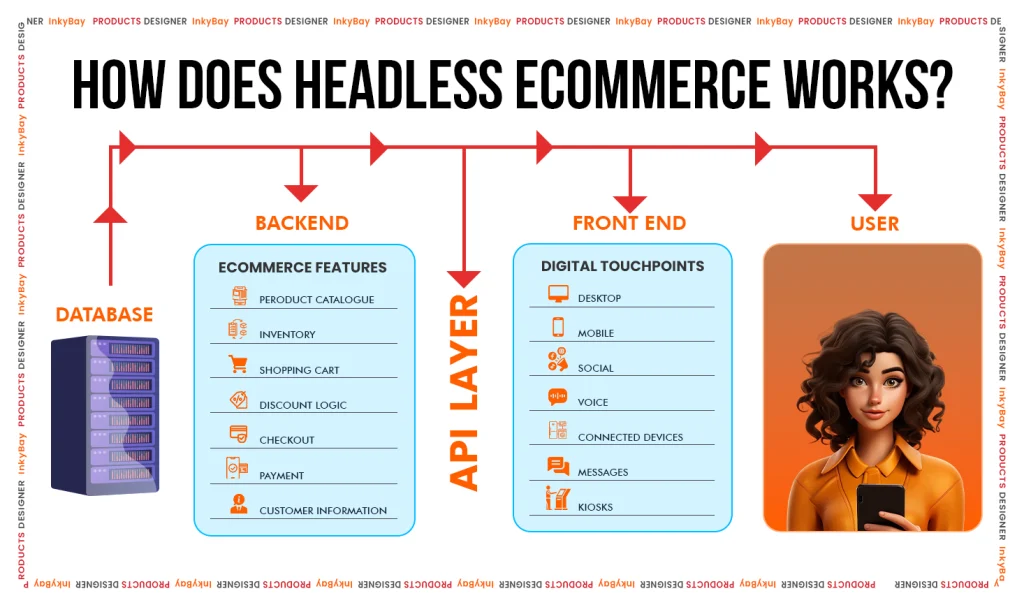
Last Updated on February 8, 2025
In 2025, the Shopify App Store continues to play a significant role in reshaping the e-commerce industry by offering a multitude of innovative tools that enhance customer experience, streamline operations, and empower businesses to remain competitive. From product personalization through AI to the integration of immersive shopping technologies, several key trends are emerging on the Shopify App Store that provide e-commerce stores with valuable opportunities to optimize their online presence.
Table of Contents
Why Emerging Trends on the Shopify App Store are Important
Brands that seek success in the rapidly changing e-commerce industry consistently stay updated on the latest trends. The Shopify App Store is no exception. Adapting to change becomes essential as consumer expectations, technology, and digital shopping habits evolve. To stay competitive and relevant, Shopify enables businesses to proactively respond to these changes with its latest tools.
1. Meeting Customer Expectations
Consumers nowadays, don’t show an effective interest in generalized shopping items. They also desire a seamless and engaging shopping experience. The advanced tech-driven e-commerce industry offers solutions to meet these demands. Tools such as AI-driven personalization, Augmented Reality, and social media commerce allow businesses to satisfy consumer expectations, directly impacting customer satisfaction and loyalty. According to a recent Epsilon study 81% of consumers say they are more likely to purchase when brands provide personalised experiences.
If neglected or refused, the trend can lead to customer dissatisfaction and ultimately loss of market share to innovative competitors.
2. Staying Competitive and Relevant
To highlight oneself from others in a competitive market adapting to the latest trends and tools is important. The development of headless commerce and mobile optimization are becoming key landmarks in ecommerce. Brands and businesses who refuse to accept these technologies are growing significant possibilities of getting outdated and unappealing to technically advanced consumers.
Having these trendy adaptations of unique tools and features, the business not only enhances customer experience but also positions themselves as forward-thinking brands, staying competitive in a rapidly changing industry.
3. Driving Growth through Operational Efficiency
When discussing operational efficiency, automation in product personalization is a key focus. Automating personalization and utilizing real-time analytics help businesses optimize operations by streamlining processes, reducing manual labor, and enhancing decision-making.
Shopify personalization tools like Inkybay not only save time but also reduce operational costs and boost growth. Meetansi’s report revealed that businesses utilizing automation can increase operational efficiency by up to 30%, a significant advantage for Shopify store owners aiming to scale efficiently.
4. Building Trust and Enhancing Security
Recent data breach issues in different sectors have become a concern for everyone. Online shoppers are no different, it has been a prioritized issue for them that their data are stored in a safe and encrypted locker. Advanced security tools on Shopify helps the business owners to protect customer data and build trust, a significant factor for brand reputation. Strongdm reports that over 55% of shoppers in United States avoid ecommerce websites without visible security measures, which defines the importance of these tools in maintaining a secure and trustworthy shopping experience.
The Emerging Trends on the Shopify App Store
1. Headless Commerce and Customization
You have already read the term headless commerce but do you wonder what is headless ecommerce? Headless commerce is when the front end (your online store and user experience) is separated from the back end (your data and business logic) of an e-commerce application. This means changes made to the front end won’t affect the back end, and vice versa.
Shopify App Store offers several apps that support headless commerce, enabling brands to customize their storefronts for better flexibility and personalization. With Shopify’s Storefront API, brands can create custom, flexible, and highly personalised shopping experiences across multiple channels. This allows them to maintain a cohesive brand identity without being limited by technical constraints.

Burrow, a furniture retailer, uses shopify headless architecture to design a highly interactive online store where customers can customize furniture layouts and materials. Without being limited by traditional e-commerce templates, this method offers a compelling buying experience.
This flexibility supports the demand for unique brand experiences and personalization-a trend that has shown significant growth over the past few years and is expected to dominate 2025.
2. AI-Driven Personalization and Automation
AI featured Shopify apps help businesses to offer adaptive personalised shopping experiences. These AI featured apps use data insights to recommend products, optimize pricing, and automate marketing strategies. A shopify app using machine learning can analyze consumers preferences to show targeted suggestions or dynamic discounts.
For example, Shopify apps like LimeSpot use machine learning to analyze user behavior and adjust product recommendations. These raise both average order value and customer satisfaction by recommending shoppers items they’re likely to purchase. Shopify’s AI-facilitated apps that personalize shopping experiences help businesses meet the expectations of 80% of consumers, resulting in higher conversion rates and developing customer loyalty.
3. Emphasis on Sustainability
Consumers now have a significant concern over sustainable practices. In fact, 70% of shoppers are willing to pay more for something sustainable. Keeping that in mind, Shopify has included apps that support eco-friendly packaging, carbon offsetting, and ethical supply chain management. These features help brands align with consumer values and build a responsible and impactful business.
By investing in green initiatives, Shopify encourages businesses to connect strongly with environmentally conscious customers, thereby enhancing brand trust and uniqueness.
4. Dominance of Mobile Commerce
With over 50% of online shopping now happening on mobile, Shopify continues to optimize its platform for mobile commerce. Shopify apps and themes are becoming increasingly mobile-friendly, offering smooth, responsive experiences tailored for smartphone users. This trend emphasizes a mobile-first design approach, particularly in checkout processes, ensuring brands capture the growing mobile shopper demographic effectively.
Since online shopping has become increasingly popular, it created a need to have optimized mobile functionality. According to sources, currently, 50% of online shopping is conducted through mobile phones. Recognizing this trend, Shopify themes are now designed to be mobile-friendly, providing smooth, responsive experiences for smartphone users. This approach emphasizes a mobile-first design, particularly in the checkout process, ensuring brands effectively capture the growing number of mobile shoppers.
5. Augmented Reality (AR) for Enhanced Product Visualization
Augmented reality used to be a dream for tech enthusiasts; now that it has become a reality, the technology is being applied for different purposes. Shopify also facilitates the apps that come with augmented reality; this allows Shopify stores and businesses to deliver 3D product views and interactive shopping experiences. Since it creates dynamicity in viewing the product, the customer return rate drops by up to 40%, helping the customers to visualise the product before they buy it.
This AR technology is largely popular among the furniture, fashion, and beauty businesses since it offers the customer the “try-before-you-buy” option.
6. Voice Commerce Integration
Voice commerce continues to gain attraction alongside the growing popularity of smart devices. Shopify is leveraging this trend by implementing voice commerce on a large scale, offering a seamless hands-free shopping experience. The use of voice commerce improves the shopping process and facilitates brands to reach a particular set of customers who prefer voice activated technology.
7. Social Commerce and Influencer Integration
Acknowledging the significance of social media in ecommerce, Shopify has developed tools to simplify the integration of platforms like Instagram, TikTok, and Facebook shops with online stores. By using social commerce apps, brands can connect with customers directly on social media platforms. This enhances engagement and sales within the platform where consumers are already spending their time. According to reports, social commerce is predicted to grow by 35% in 2025, resulting in an essential part of e-commerce strategy.
8. Real-Time Analytics and Insights
Shopify apps that provide real-time analytics allow merchants to make data-driven decisions faster. By tracking customer behavior, sales trends, and inventory updating in real time, brands can make frequent adjustments that optimize their marketing and operations. Apps that provide these insights are increasingly popular as businesses seek faster ways to maximize profitability.
9. Progressive Web Apps (PWAs) for Faster User Experiences
PWAs provide a native app-like experience, both on mobile and desktop without requiring a download, making them an attractive solution for improving loading times and offering offline capabilities. By prioritizing speed and responsiveness, PWAs help brands reduce bounce rates and improve user engagement. It is expected that more stores would use PWA technology to improve customer experience as Shopify apps make it possible.
10. Enhanced Security Measures
Cyber threats are getting better every moment as attackers are finding thin and dynamic ways to breach security of websites and apps. In this regard, Shopify is also introducing and reviewing advanced security measures with a high priority. Apps with advanced security measures from detecting fraud to SSL certification will get first preference as customers are highly concerned about their online safety.
55% of the customers avoid businesses without proper security measures. The ecommerce business now offers a great priority on security protocols to build trust among the customers and protect their sensitive information.
In a nutshell
As the e-commerce industry evolves, the Shopify App Store leads the way, offering technologies and tools that enhance growth, efficiency, and customer satisfaction. The emerging trends—from AI-driven personalization and augmented reality to the increasing popularity of voice and mobile commerce—are not other short lived trends.

